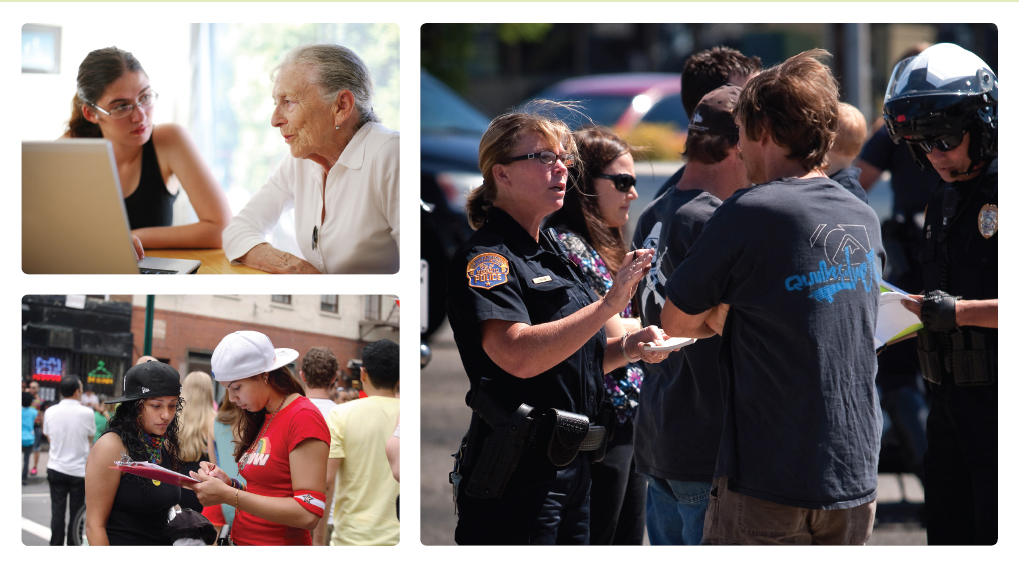What Is Interviewing?
LearningCurve can help you review! Go to bedfordstmartins.com/
An interview is like a good conversation, filled with thoughtful questions and interesting answers. But an interview also has a structure and a defined purpose. Its success often depends on how carefully you plan it, including anticipating the topics that will be covered and the questions that will be asked.
Think about different situations in which you ask questions to get information from others. For example, to prepare a speech, you chat with an expert as part of your research on the topic. To write an article for the school paper, you meet with a school administrator. To make a hiring decision, you talk with a number of job applicants. In each of these situations, you are thoughtfully questioning, or interviewing, others. Interviewing is a planned and structured conversation between two or more persons that uses questions and answers to meet a specific purpose.
An interview is planned and structured because the participants have clearly defined roles and responsibilities. The interviewer determines the in-terview purpose, plans the questions, and manages the flow of the conversation. The success of an interview can depend on how well an interviewer prepares in advance. For example, before interviewing a school administrator for an article you’re writing, you think about the topics you want to discuss and create a list of relevant questions to ask.
The interviewee is the person answering the questions. However, this is not a passive activity. Interviewees must actively participate in the interview, too. If the school administrator responds to your questions with one-word answers or shows little interest in being interviewed, you won’t get the information you need for the article you’re writing.
Many interviews are dyadic—that is, they involve two people. But some take place in small groups. For example, during a job interview, four team members might ask questions to one interviewee. Or, a journalist may conduct a small group interview—meeting with multiple interviewees at the same time. Interviews can also occur in face-to-face settings or through mediated communication (such as by telephone or videoconferencing).
DIFFERENT TYPES OF INTERVIEWS
